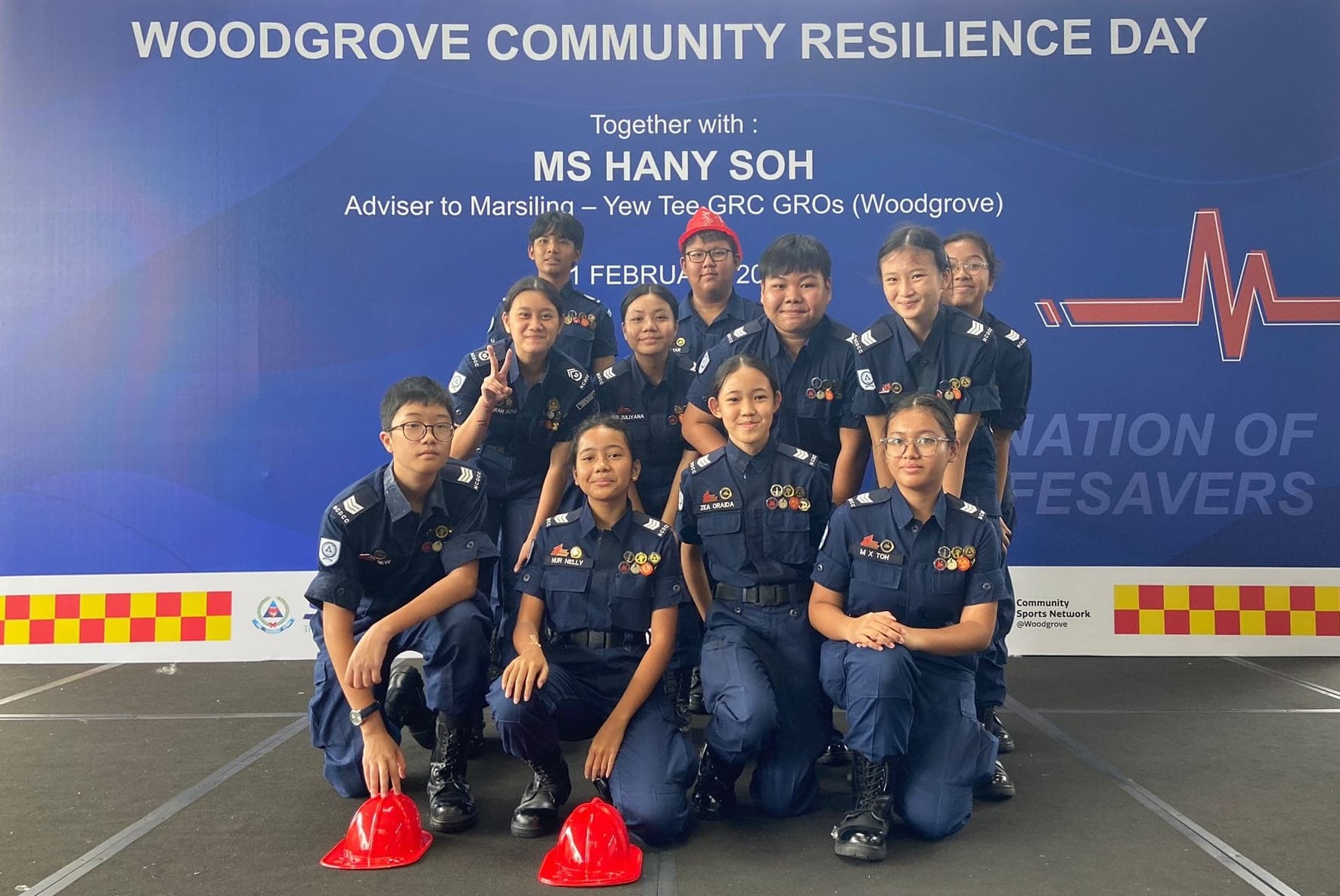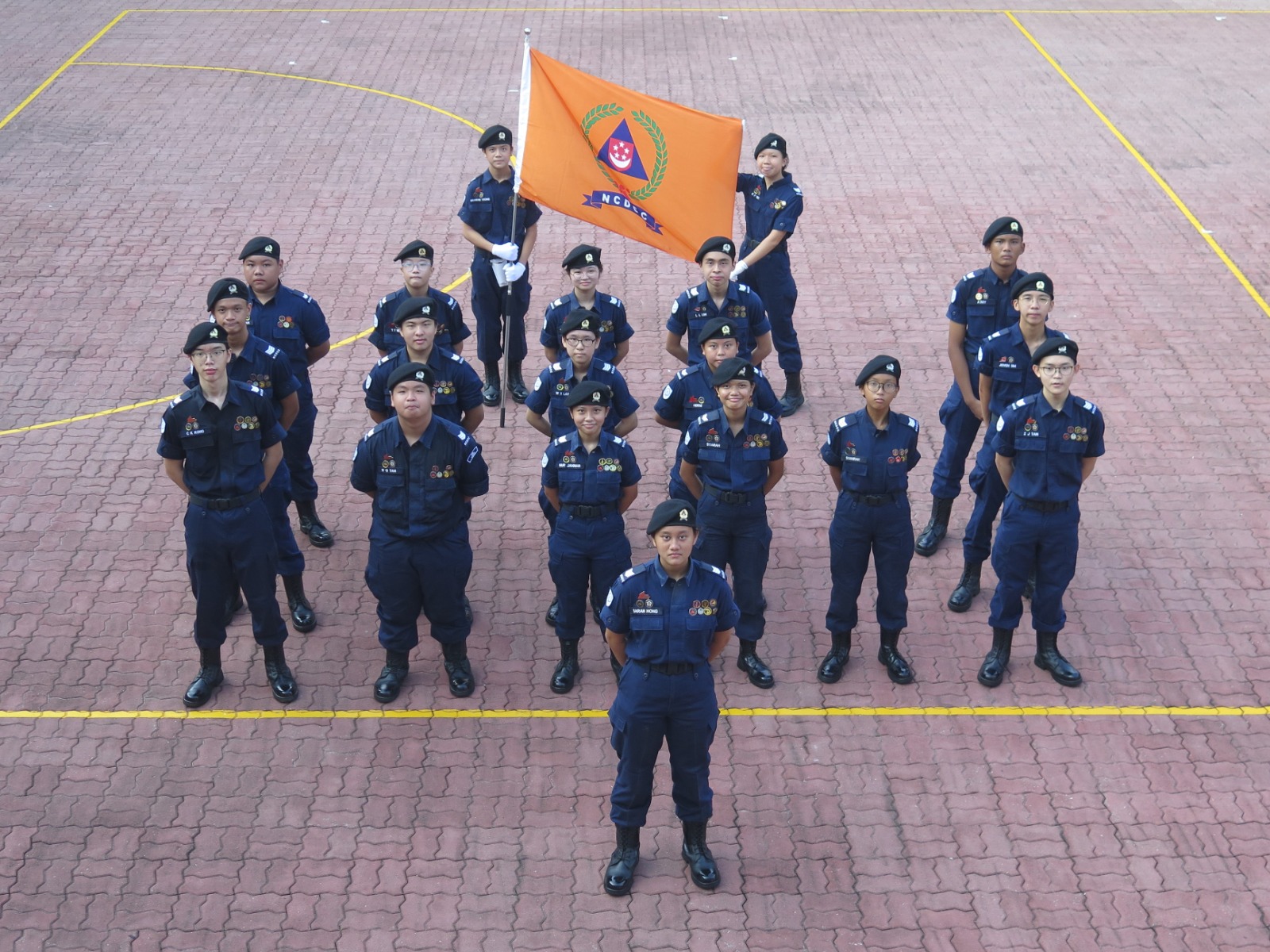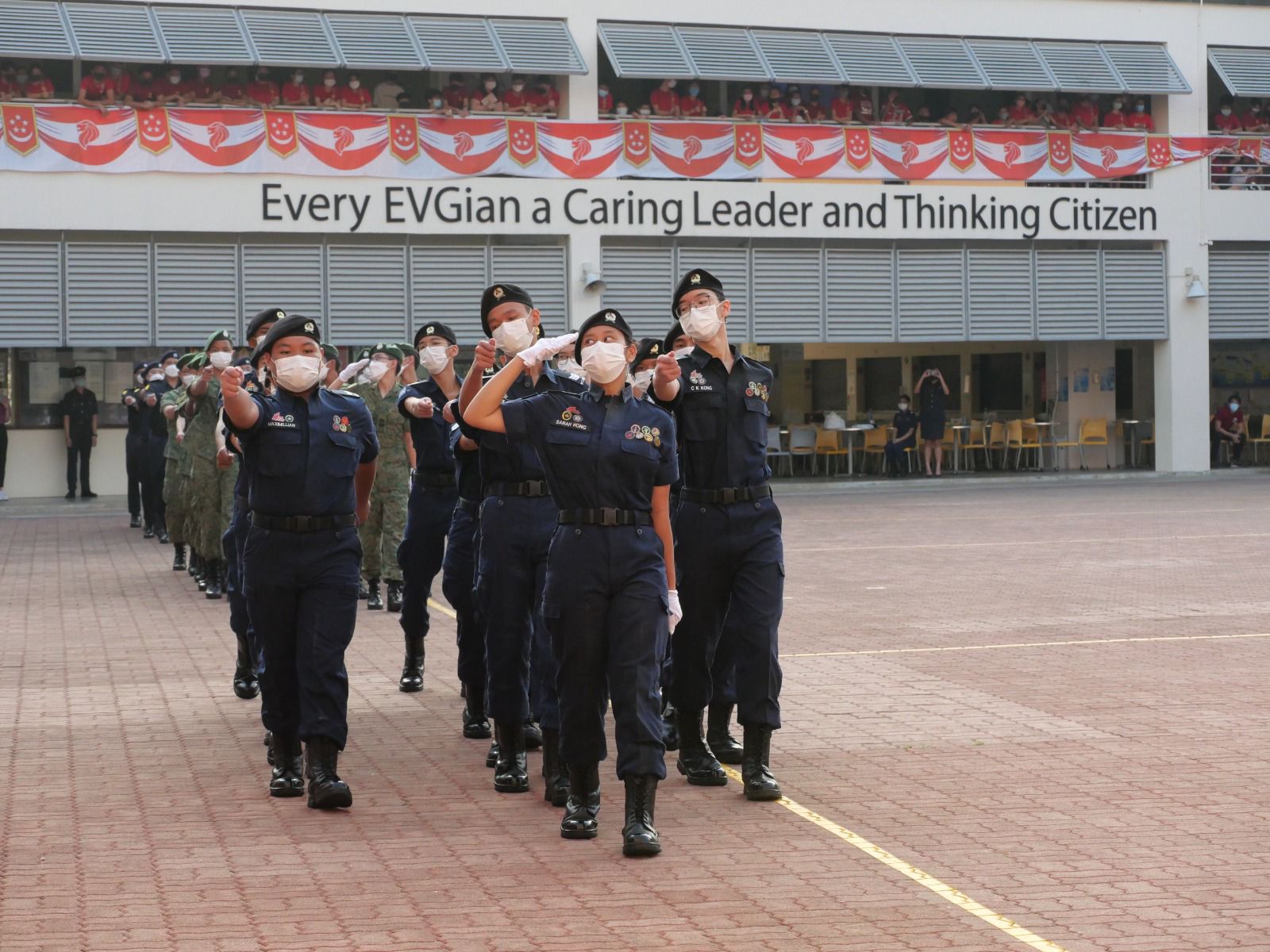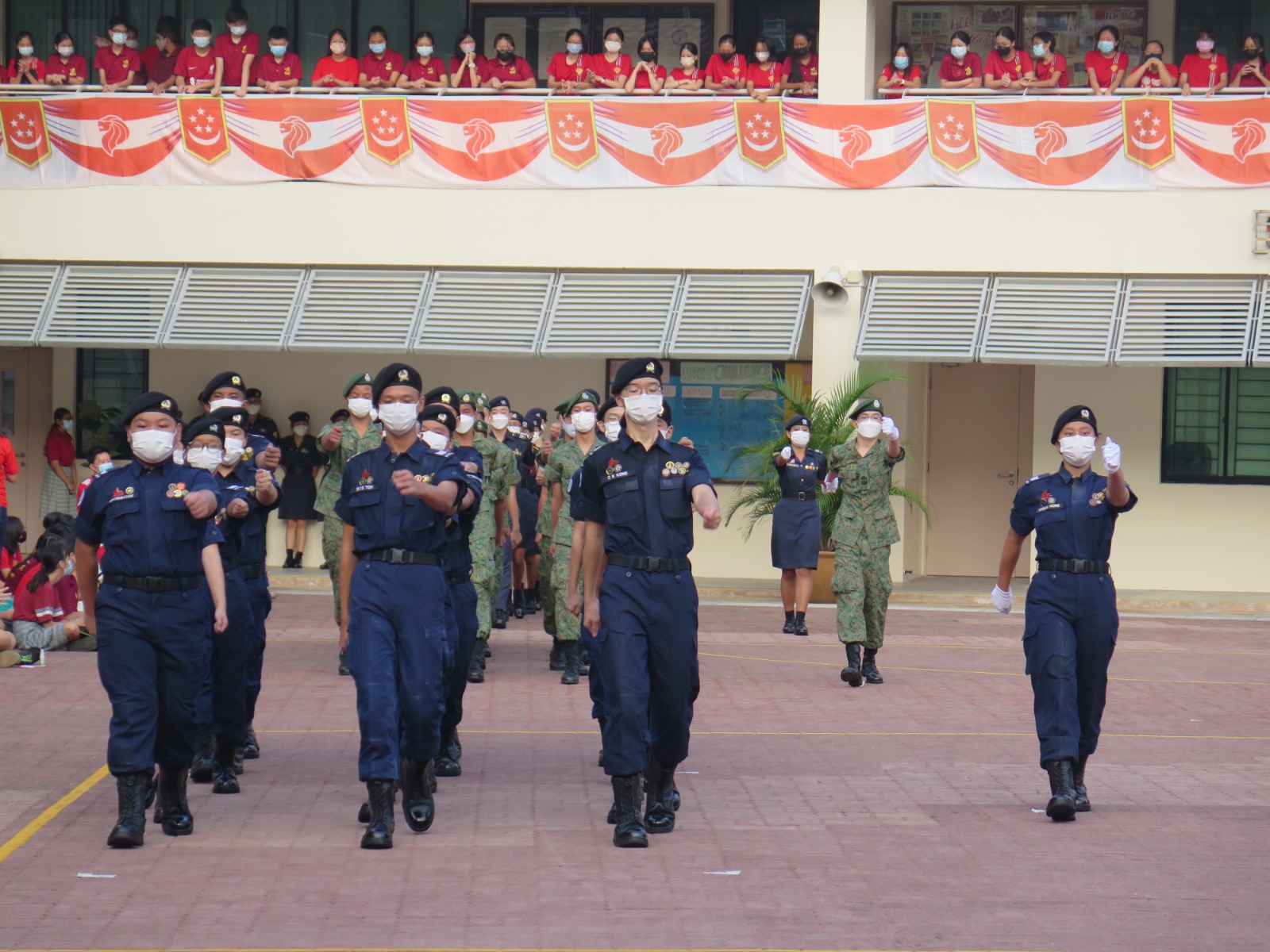National Civil Defence Cadet Corp (NCDCC)
National Civil Defence Cadet Corps (NPCC)

NCDCC’s curriculum focuses mainly on Triangle of Life Skills which include basic firefighting, first aid and CPR+AED. These are important lifesaving skills that can make a difference to save a life in times of needs.
Teacher in Charge: Ms Sangeetha Natarajan, Mr Nelson Lam, Ms Chew Si Hui
Organisational Structure:
| Leadership Role | Student |
|---|---|
| UNIT SERGEANT MAJOR (USM) | ANEEQ MARITH BIN MUNAWAR |
| ASSISTANT SERGEANT MAJOR (ASM) | MUHAMMAD NASRIN BIN MUHAMMAD ADI |
| REGIMENTAL SERGEANT MAJOR (RSM) | FASYAH QIARA BINTE SHAHRIL |
Life of a NPCC Member
Year 1
The three badges that a Secondary One Cadets will complete include Total Defence (Bronze) Badge, Foot Drill (Bronze) Badgeand Fire Safety Proficiency Badge. Cadets get to go through fire safety training at Sectorised Training. They are eligible for promotion to Lance Corporal upon completion of the three badge works.
Year 2
Secondary Two Cadets typically will complete six badges within the year. This includes Civil Defence Knowledge Badge, First Aid Proficiency Badge, SANA Badge, Foot Drill (Silver) Badge, CPR+AED Proficiency Badge and Rescue Proficiency Badge. They are eligible for promotion to Sergeant upon completion of six badge works.
Year 3
Secondary Three Cadets are required to complete the HAZMAT Proficiency Badge and Homefront Security Badge. There will also be three Specialisation Courses offered, namely the Fire Safety, Medical Response and Urban Search and Rescue Specialisation Courses. Cadets are eligible for promotion to Staff Sergeant upon completion of the Specialisation Courses.
Year 4
The top tier of Cadet Leader will be chosen to the Warrant Officer of the unit.
Awards and Achievements
Unit Overall Proficiency Award 2022 – Gold
NCDCC Instructional Video Competition – Champion
NCDCC Urban Adventure Civil Defence Challenge 2022 – 2nd Runner Up
Participation in National Day Parade (NDP) 2022
Unit Overall Proficiency Award 2021 – Gold




